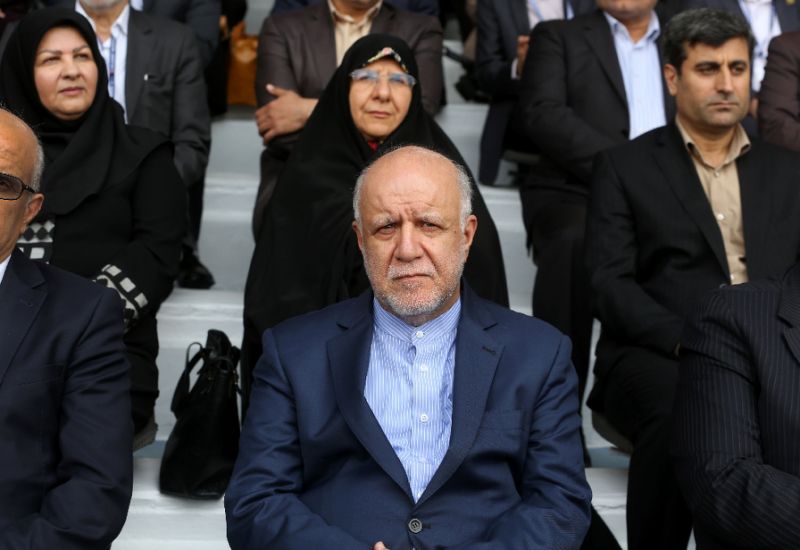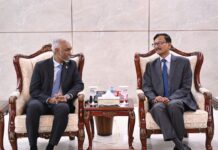TEHRAN: Iranian Oil Minister Bijan Namdar Zanganeh on Wednesday claimed two neighbouring countries were “exaggerating” their production capacity to reassure markets after the US ended sanction waivers for buyers of Iranian crude.
Zanganeh also said Washington’s stated aim to bring Iran’s oil exports “to zero” was “an illusion”.
The White House announced last week it would end from Thursday oil purchase waivers granted to Iran’s main customers — including China, India and Turkey.
Since then, Zanganeh claimed, “two of our neighbouring countries constantly try to reassure the market, by issuing statements and by exaggerating their surplus capacities”.
These countries which he did not name were trying to signal to the world that “there would be no problem facing global supplies as Iranian oil goes off the market”.
It’s “an exaggeration”, Zanganeh said, speaking at an oil and gas conference in Tehran.
“World affairs are not as simple as America and some of its supporters and instigators think. The oil market cannot be managed with statements, what is determining is real oil production that is placed on the market.” The end of the exemptions sparked fears of supply shortages, pushing prices to near six-month highs.
After the US announced an end to the oil waivers, Iran’s regional rival and neighbour Saudi Arabia said the kingdom had no immediate plans to boost output but was committed to balancing the oil market.
“We will not leave our customers scrambling for oil,” Saudi Energy Minister Khalid al-Falih said on April 24.
Countries looking to replace Iranian crude “know which number to dial,” Falih said.
“(Global) inventories are continuing to rise despite what’s happening in Venezuela and tightening sanctions on Iran,” he added.
Saudi Arabia, a member of the OPEC cartel, is the world’s top crude exporters.
Iraq, the cartel’s second-largest producer and also a neighbour of Iran, has the capacity to increase its exports by 250,000 barrels a day to compensate for any market shortfalls, an Iraqi government official said last week. AFP







